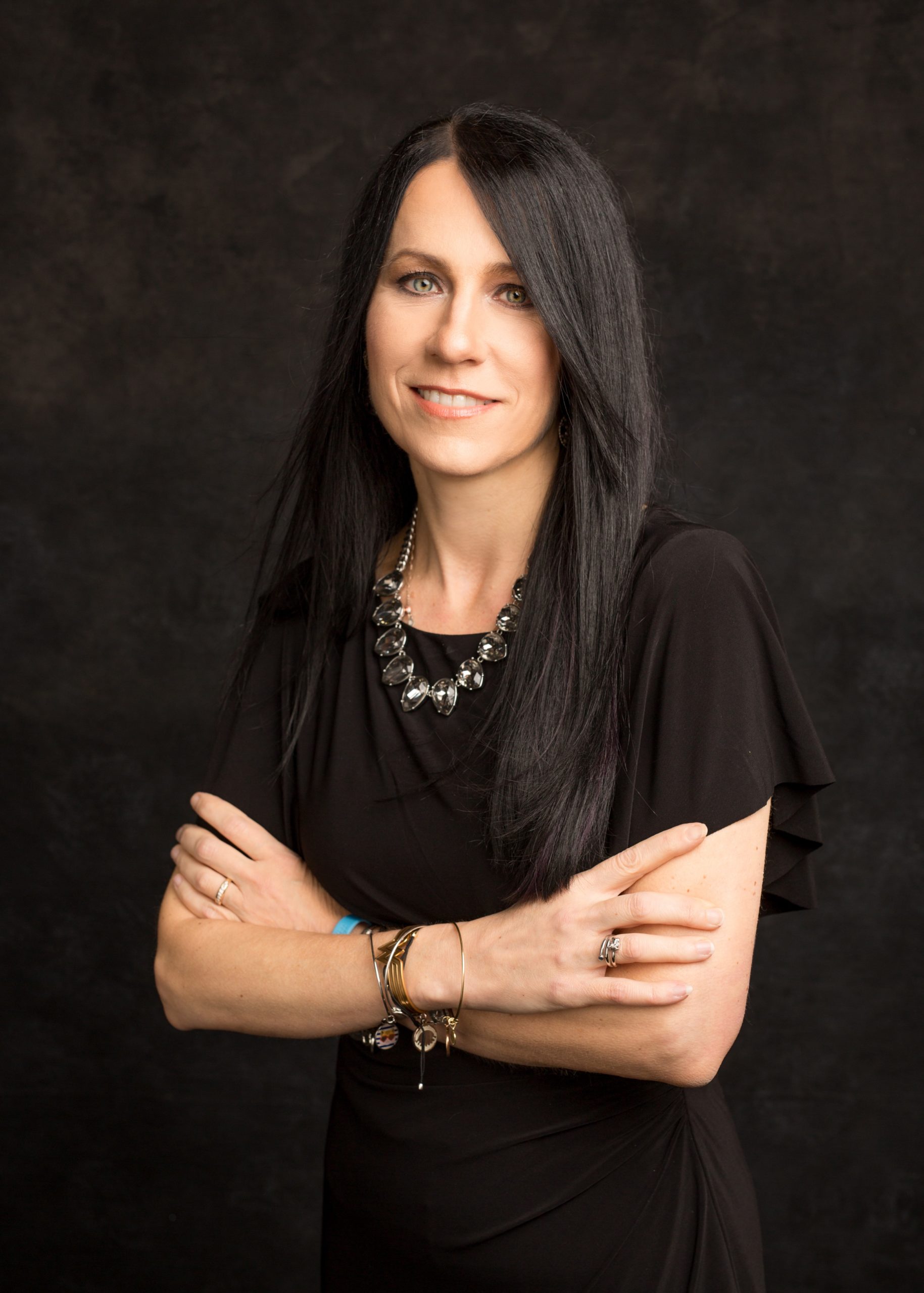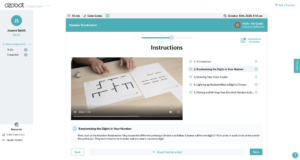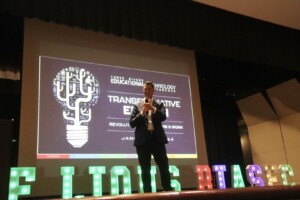Google for Education and the Future of the Classroom

Earlier this month, I learned about a new partnership between Google for Education, and Canvas8 a team of global researchers who have been studying the different trends and shifts happening in classrooms around the world. Each day there are discussions in global learning communities about how we can best prepare our students for the future of learning and the future of work. The complicated part of these discussions is knowing which skills our students will need in the future. Educators have the challenge of figuring out how to prepare our students for a world that does not yet exist. To do so, they must not only determine how to leverage the tools and the knowledge that we currently have, but also make predictions about the skills our students will need in the future. Equipping students with the knowledge and diverse skills is a must so they will be at the highest advantage to adapt to whatever that landscape will look like.
To help all educators prepare students for the changes in the future, Google for Education has partnered with Canvas8, to study the changes in education and technology. Through this partnership, they have highlighted what they consider to be the eight emerging trends in education today and provided an overview of what these trends look like globally.
What Educators Can Learn by Exploring Google’s Future of the Classroom
Google for Education provides multiple ways for educators to learn more about these emerging trends as well as broaden their perspective of what educators around the world are doing in their classrooms. The Future of the Classroom provides resources to educators through the following formats: Global Report, Edu OnAir, Educator Interviews, and Teacher Center training modules.
Global report – In the global report, the team breaks down the emerging trends in K through 12 classrooms which have been the focus of the study. The report is part of a series being done by a team of experts who undertook extensive research over the past two years. The research included interviews of different educational thought leaders, a literature review of publications from the past two years, desk research and a narrative analysis conducted through surveys and additional investigations. The team then compiled all of this information and identified the eight emerging trends in K through 12 education. The trends are:
- Digital Responsibility
- Life Skills and Workforce Preparation
- Computational Thinking
- Student-led Learning
- Collaborative Classrooms
- Connecting Guardians and Schools
- Innovative Pedagogy Emerging Technologies
Educators can use the report as a guide to developing a greater understanding of how other classrooms are using this information to better design learning experiences to meet the needs of our students. The report outlines each trend based on: what’s happening, where are we seeing it, the numbers and resources for further reading.
Edu OnAir – There are currently four webinars available on demand and I had the opportunity to participate in the first two “livestreams.”
The first, “Future of the Classroom Research Findings” provided a very informative overview of the work that has gone into this project. The panelists explained the process for identifying and defining the eight trends, the amount and type of research involved, the global experts consulted, and all of the components of this project that the Google team started. The data and analytics then became the basis of the Global Report.
The second, “Computational thinking: Now and in the Future, took a look at the changes in education due to STEM curriculum and coding, and how schools can provide more opportunities for students in these areas. The panelists included Kevin Brookhouser (Author), Krishna Vedati (CEO of Tynker), Samantha Amoroso (Researcher Canvas8) and Sally-Ann Williams (Leader of CS and STEM for Google). It was a nice balance of educators, researchers and thought leaders.
The third, “Student-led learning around the world” focused on ways that students are being empowered in schools today and how educators can seek more opportunities for student-led classrooms. Educators looking to create more choices in learning for students will take away some helpful ideas and new perspectives from this episode.
The fourth, “Digital responsibility in the 21st Century” focused on how schools and families can best prepare students for interacting in an increasingly digital world, with a focus on digital citizenship. Based on the numbers which show increasing use of mobile device usage, especially in the area of social media, this is a very timely topic for educators to gather ideas from.
Interview playlists – Currently there are 13 videos available on the playlist, which provides short videos where educators discuss their thoughts about the future of education. Each educator shares their choice for an emerging trend in education and work, what they think will have a big impact on education, and offers advice for how to prepare our students and ourselves for the future. Some ideas offered were: to stay connected with technology, continue to take some risks, be willing to learn and fail, always learn about students and work together to build relationships. It is always helpful to learn from other educators with different experiences and perspectives and can help to generate new ideas and inspiration to try new methods in classrooms.
Teacher Center Resources – Provides links to Google for Education tools where educators can work through different modules and use the training resources to better understand some of these emerging trend topics. If you have taken the courses to prepare for the Google Educator certification exams, the links provided in the Teacher Center are set up in a similar way.
What does the Future of the Classroom look like?
According to the research done and shared in the global report, there was a clear focus on how technology use has increased over the past six years and the role that technology will likely play in the future of work and learning. There will always be concerns about technology use, which is why it probably comes as no surprise that one of the first emerging trends identified was digital responsibility.
In the UK, 99% of teachers said that online safety should be part of the school curriculum. Personally, I found it a bit startling that in the United States, more than 39% of students had a social media account by the time they turned 12 years old. That same statistic was 46% in the UK. Because the use of technology is so prevalent, and at such a young age, there has to be an intentional focus to teach students and to reinforce our own knowledge about digital responsibility.
The global report itself provides a lot of details, statistics, reference materials, and shows a global comparison between countries including the United States, the UK, Sweden, Germany, Brazil, New Zealand, Japan, Finland and several others. The Edu OnAir webinars did an excellent job of detailing all of these trends, providing different statistics and engaging the participants in the live discussion.
What do I recommend?
For educators and administrators looking to better understand the emerging trends in education and how educators around the world are preparing our students, the resources provided by Google for Education through the Future of the Classroom will be quite helpful. I recommend reviewing the information shared in the global report and viewing the first Edu OnAir episode. It was full of data and references to perspectives from educators and classrooms around the world. It was quite informative and interesting to see and hear the detailed results of the two years of research and opinions of the education thought leaders. The goal is to broaden our understanding of what the world of learning and work might look like for our students and the Future of the Classroom provides a good starting point for educators and administrators.
For more, see:
- How to Be Employable Forever
- How Educators Can Prepare for the Future of Work
- Student Choice to Prepare Students for the Future of Work
Stay in-the-know with innovations in learning by signing up for the weekly Smart Update.








Scalefusion MDM for Education
Thanks for sharing this interesting post, Rachelle! A good read indeed. Smart classrooms are finding a way to the future and with evolving mobile technologies the whole educational industry is digitally transforming fast. Mobile devices in the classroom with access to the internet and interesting resources are creating new interest among students helping them improve their efficiency and productivity to a larger scale.
Android tablet kiosk
Amazing post Rachelle. Smart classrooms are emerging up with new mobile technologies as the whole education industry is going to be digital transforming fast.
ipad kiosk mode
Thanks for sharing this awesome post, Rachelle! Smart classrooms are finding a way to the future and with evolving mobile technologies the whole educational industry is getting digital transforming fast.